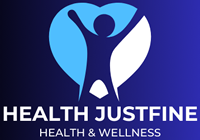Introduction
Stress is an inevitable part of modern life, but its impact on health can be profound. Chronic stress can lead to various health problems, including anxiety, depression, and cardiovascular issues. While lifestyle changes such as regular exercise, a healthy diet, and mindfulness practices are crucial for managing stress, certain supplements can also offer support. Here are ten supplements that may help manage stress, how they work, and precautions to consider. For additional support in managing your stress levels, consider “Stress Annihilatior Manual” available in PDF & Video Series format ,designed to help you reduce stress level and improve your overall well-being.”
10 Supplements to Help You Manage Stress
1. Ashwagandha
Ashwagandha is a revered herb in Ayurvedic medicine known for its adaptogenic properties, which help the body cope with stress.
How it works: Ashwagandha helps lower cortisol levels, the body’s primary stress hormone, and improves overall resilience to stress.
Precautions: Can cause mild digestive issues in some people. It’s important to consult a healthcare provider if you are pregnant, nursing, or have autoimmune conditions.
2. Rhodiola Rosea
Rhodiola Rosea is another adaptogen that has been used in traditional medicine to enhance energy and reduce fatigue associated with stress.
How it works: Rhodiola helps balance the body’s stress response by regulating cortisol levels and improving cognitive function.
Precautions: May cause dizziness or dry mouth. Start with a low dose to assess tolerance and avoid if you have bipolar disorder due to potential mood swings.
3. L-Theanine
L-Theanine is an amino acid found in green tea that promotes relaxation without causing drowsiness.
How it works: L-Theanine increases the production of calming neurotransmitters such as GABA, serotonin, and dopamine, which help reduce stress and promote a sense of calm.
Precautions: Generally safe, but excessive intake can cause headaches or dizziness. Consult with a healthcare provider if you are taking medication for high blood pressure.
4. Magnesium
Magnesium is a vital mineral involved in over 300 biochemical reactions in the body, including those related to stress management.
How it works: Magnesium helps regulate neurotransmitters and the stress response, promoting relaxation and reducing anxiety.
Precautions: Excessive intake can cause diarrhea and abdominal cramping. People with kidney issues should be cautious and consult a healthcare provider before supplementation.
5. Vitamin B Complex
B vitamins, particularly B6, B9 (folate), and B12, play a crucial role in brain health and stress management.
How it works: B vitamins help convert food into energy, regulate neurotransmitter function, and reduce homocysteine levels, which can improve mood and reduce stress.
Precautions: High doses of certain B vitamins can cause nerve damage or interact with medications. Stick to recommended dosages and consult with a healthcare provider.

6. Valerian Root
Valerian root is a herb traditionally used to promote relaxation and improve sleep, which can be affected by stress.
How it works: Valerian root increases GABA levels in the brain, which helps calm the nervous system and reduce anxiety.
Precautions: Can cause drowsiness, headaches, or dizziness. Avoid driving or operating heavy machinery after taking it, and consult a healthcare provider if pregnant or nursing.
7. GABA (Gamma-Aminobutyric Acid)
GABA is a neurotransmitter that plays a key role in calming the nervous system.
How it works: GABA inhibits nerve transmission in the brain, promoting relaxation and reducing anxiety.
Precautions: GABA supplements are generally safe, but high doses can cause increased heart rate or shortness of breath. Consult a healthcare provider if you are taking other medications.
8. Passionflower
Passionflower is a plant used traditionally to treat anxiety and insomnia.
How it works: Passionflower increases GABA levels in the brain, helping to reduce stress and promote relaxation.
Precautions: Can cause drowsiness, dizziness, or confusion. Avoid combining with sedatives or alcohol, and consult a healthcare provider if pregnant or nursing.

9. Omega-3 Fatty Acids
Omega-3 fatty acids, found in fish oil and flaxseed oil, are essential for brain health and can help manage stress.
How it works: Omega-3s reduce inflammation and support brain function, which can help improve mood and reduce anxiety.
Precautions: High doses can increase the risk of bleeding, especially if you are taking blood-thinning medications. Consult a healthcare provider for appropriate dosing.

10. Lavender
Lavender is well-known for its calming and relaxing properties, often used in aromatherapy but also available in supplement form.
How it works: Lavender contains compounds that interact with the brain to promote relaxation and reduce anxiety.
Precautions: Can cause gastrointestinal issues or allergic reactions in some individuals. Avoid excessive use and consult a healthcare provider if pregnant or nursing.
Conclusion
Incorporating these supplements into your routine can provide additional support in managing stress, but they should not replace healthy lifestyle habits such as a balanced diet, regular exercise, and adequate sleep. Always consult with a healthcare provider before starting any new supplement, especially if you have pre-existing health conditions or are taking other medications. Proper management of stress involves a comprehensive approach that includes lifestyle modifications, mindfulness practices, and, when necessary, professional support.
Boost your overall health and learn how to manage stress with Stress Annihilator Manual, the complete guide available in both PDF & MP4 format, designed to help you reduce stress and live a stress free life. Click here to learn more.







Add a Comment